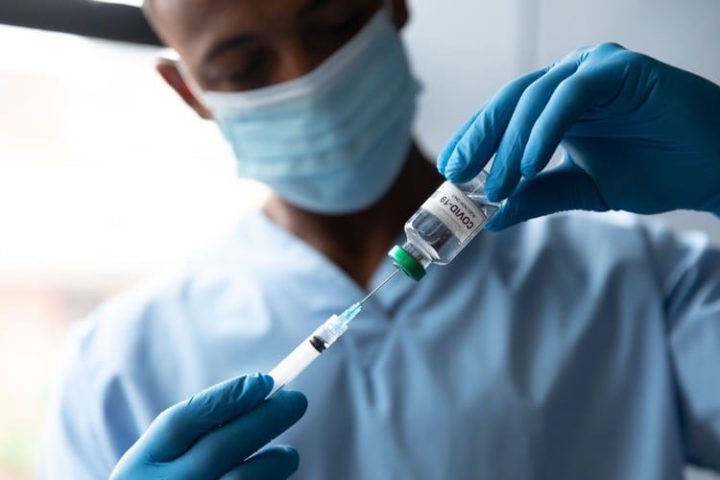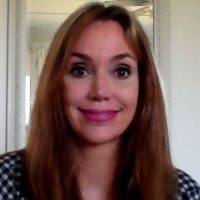
Is Michael Bloomberg, a man whom Donald Trump referred to as an elitist globalist, demonstrating to South Africans the dangers of billionaire-owned media bias?
When Bloomberg launched his “Bloomberg Media Initiative Africa” in 2014 — ostensibly to advance transparency, accountability, and good governance on the continent — the initial focus of the $10 million commitment was on Kenya, Nigeria, and South Africa. The program aimed to deliver timely and accurate reporting of business and financial matters, provide training programs and mid-career fellowships for business and financial journalists, and provide greater access to reliable data concerning Africa.
In an article published by American investment company Vanguard on October 9, 2020, journalist Gabriel Ewepu-Abuja wrote,
As the world waits in anticipation to see the end of the novel Coronavirus, COVID-19 pandemic, media organizations in Nigeria, Kenya and South Africa, have received financial support to boost the capacity of journalists and contents on accurate reportage and information about the pandemic.
This was made known to Vanguard by the Director, Bloomberg Media Initiative Africa, BMIA, Erana Stennett.
This poses the question: What would Mike Bloomberg consider a return on this financial investment in the media of South Africa during the COVID-19 pandemic? Many white South Africans would suggest that Bloomberg Africa has been misrepresenting the affluent white middle-class, by portraying them as a key problem in the rolling out of COVID-19 vaccines. It would be fair to propose that targeting a group of people who own motor vehicles and numerous electrical appliances, have home air-conditioning for the hot summers, and consume large amounts of meat and convenience foods paves the way for future bullying should the United Nations succeed in implementing Agenda 2030.
On August 17, Bloomberg Africa’s Antony Sguazzin and Prinesha Naidoo published an article titled “White Adults Are Most Vaccine-Hesitant South Africans, Survey Shows.” The report stated that, according to the Human Sciences Research Council (HSRC) of South Africa, only 52 percent of white adults in the country were willing to get COVID-19 shots — compared to three-quarters of their black counterparts. The HSRC website doesn’t yield literature that corroborates this statement — which makes it peculiar that Bloomberg focused on less than 2.5 percent of the population (the vaccine hesitant white adults), who’d have very little impact on the overall success of a COVID-19 vaccine rollout.
According to Worldometer — voted one of America’s best free reference websites — there are currently 60,247,123 million people living in South Africa, 4.7 million of whom are estimated (on the authority of South Africa’s government website) to be white, 5.2 million of whom are colored, and 1.5 million of whom are of Indian/Asian descent. In November 2019, an advocacy project of the Children’s Institute at the University of Cape Town published findings that 34 percent of the total South African population comprises children. If we applied this figure to the white South African population, 48 percent of the presumed white adult population of South Africa is a mere 1.49 million people. In addition, scientific online publication Our World in Data (OWID) reports that only 8.23 million South Africans are currently fully vaccinated, lending little credibility to the idea that 24.2 million black adults (constituting three-quarters of their demographic) are keen to get vaccinated.
South Africa is a country that promotes free COVID-19 vaccinations and — according to several of President Ramaphosa’s addresses to the nation — secured 11 million Johnson and Johnson vaccines, 12 million COVAX doses, and 20 million Pfizer doses, with a target to vaccinate 67 percent of the population by the end of 2021. At this point, it’s worth mentioning that international survey company Afrobarometer reported findings in August 2021 that differed from the information Bloomberg Africa had reportedly obtained from the HSRC. Afrobarometer found that 54 percent of South Africans were unlikely to get the vaccine — and that almost half thought prayer was a better defense against COVID-19 than an inoculation.
Yet, as announced by Bloomberg Africa’s S’thembile Cele on September 23, in his address at the Global COVID-19 Summit, South African President Cyril Ramaphosa accused developed countries of acting immorally by hoarding vaccines needed in poorer nations. Arguably, President Ramaphosa must have been speaking on behalf of other poorer African countries — particularly in light of the plan he and South African-born biotech billionaire Patrick Soon-Shiong were about to announce. In consonance with an incredible solution to this inherent Africa COVID-19 vaccine crisis, Bloomberg’s Antony Squazzin divulged that Soon-Shiong was about to unveil a strategy to transfer technology for the COVID-19 and cancer vaccines to South Africa. As expected, South African mainstream media circulated Bloomberg’s article.




